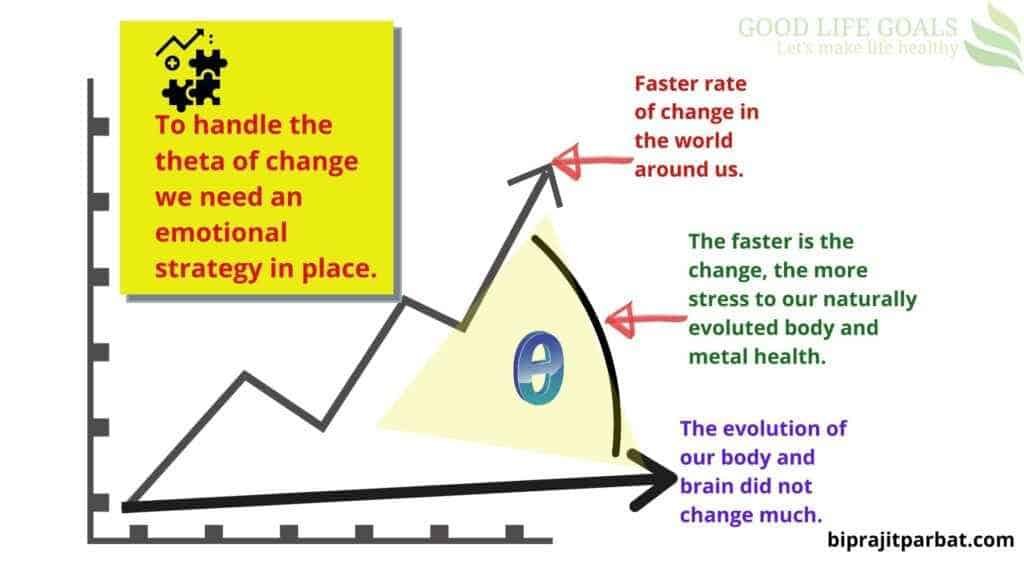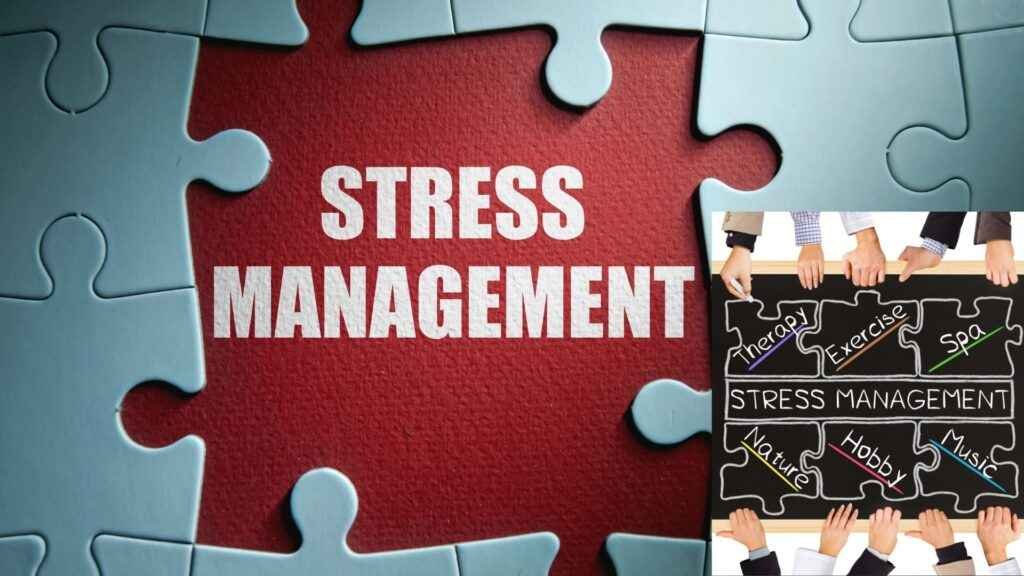Stress is our coping response to the ever-changing world. In today’s world the change is happening faster. But our evolution did not change much in last 100 years. So in between the gap between our natural evolution and rapid changing environment the lifestyle diseases are creeping into. We need to have strategies in place to use stress for our performance. We have to prevent long term stress and thus we need the coping strategies in-place. That is why stress management is important.

How an emergency temporary response “stress” can create cascades of long-standing problems in human being?
That’s the greatness about our brain.
When a rat sees a cat – it develops an immediate stress response and run away from the place immediately and the stress response goes away.
The rat cannot generate a stress response by visualizing the cat from his memory and projecting thoughts about the cat when actually the cat is not there. It cannot also develop a neural circuit about a particular cat by repeatedly firing a bundle of neurons and then develop a self-sustained neural network which can even fire spontaneously now & then with the mildest probability of the original stimulus at sub-conscious level without even telling the rat.
We, humans can do that. Thus, even in absence of the original stimulus we can continuously fire the neurons unknowingly and can produce the chemical of stress. Now just Imagine you have developed such 100 neural nets due to past negative experience and they fire every now & then with mildest predictive probability of the original event. And they do so without telling you. Thus, without your knowledge the stress button remains pressed for long time.
Following 10 changes happen in our body following long standing stress –
- Once our brain gets the stress signal, it’s hypothalamus (the controller of the hormonal system in our brain) starts producing hormone related to stress (CRH – Cortico-trophin releasing hormone). The stress releases the hormone from our pituitary (ACTH – Adreno-cortico Trophic Hormone) and this in-turn release adrenaline from our adrenal gland. In long term stress the hormone name glucocorticoid is increased.
- The stress hormone prepares our body for a 3F response (Flight, Fight & Fright response).
- It increases the body fuels that we would need for 3F- blood glucose level, stored body fuel by means of cholesterol etc.
- It slows down our non-emergency but productive body activities i.e., digestions, regeneration & recovery activities.
- It increases gastric acid secretions and causes palpitation, irritability, lack of sleep, depression, sexual dysfunction, headache, generalized body ache etc.
- It robs you of your dopamine system, you are robbed of your creativity and holistic thinking without the alpha activity in your brain and now you seek for addictions for the temporary escape from the situation to the heavens of dopamine at the cost of your health.
- As in 3F mode our body puts away its vital energy source for excess body fuels by means of cholesterol.
- It spends lesser energy for our immunity and regeneration process.
- It increases chances of infections and degenerative diseases.
- Persisting long, it also can give rise to anxiety and panic disorders, diabetes, cholesterol problems, heart diseases etc.
Why long-term stress is bad for our health?
Stress is a natural mental and physical response to any demand. Any kind of challenges like productivity at work or school, an abrupt life change, or a psychologically painful event can be stressful. Stress can impact your health. It is vital to be sensitive about how you handle both minor and major causes of stress, so you’re aware when to look for assistance.

Here are some of the things you need to understand about stress:
Stress affects everyone
Everyone experiences stress from time to time. Various types of stress exist–all of which have a mental and physical health risk. Stress may be a short-term or a one-time incidence or repeatedly occur over a long period.
Examples of stress include:
- Regular stress is associated with pressure from family, work, school, and other everyday duties.
- Stress resulting from an abrupt negative change such as sickness, break-up, death of a loved one, or losing a job.
- Traumatic stress resulting from events such as war, a dangerous accident, or natural calamity where individuals may be at the risk of suffering serious harm or even death. Individuals who suffer traumatic stress may reveal deplorable temporary physical and emotional symptoms.
Not all stress is harmful.
In endangering situations, stress alerts the body to be ready to face a threat or run away for safety. In non-endangering situations, stress can motivate individuals, such as during examination or recruitment.
Long-term stress is bad for your health.
Dealing with the effect of chronic stress can be demanding. Given that long-term stress results from a regular stressor compared to short-term stress, the body never gets a clear signal to regress to normal functioning.
Symptoms of chronic stress include:
- Headaches
- Irritability
- Insomnia
- Depression
- Anxiety
These are the most affected areas for individuals experiencing chronic stress:
Respiratory and cardiovascular systems
In response to stress, you will experience rapid breathing to distribute oxygenated blood to your body quickly. If you have pre-existing breathing problems such as emphysema or asthma, stress can make it even more difficult to breathe.
When stressed, your heart also pumps faster. Stress hormones lead to constriction of blood vessels directing more oxygen to your muscles to have enough strength to combat the situation. But this also raises your blood pressure, which increases the risk of heart attack and stroke.
Digestive system
When stressed, your liver produces excess glucose to boost your energy. If you’re experiencing chronic stress, your body may be unable to control this excess glucose rush. Chronic stress raises the risk of getting diabetes type 2.
Stress may also disrupt the way food moves through the body, causing constipation or diarrhea. You might even have a stomach ache, vomiting, or nausea.
Reproductive system
If stress persists for long, testosterone levels in a man begin to go down. This can tamper with sperm production resulting in impotence or erectile dysfunction. In females, stress can affect the menstrual cycle. It can result in more painful, heavier or irregular periods.
Immune system
Stress arouses the immune system, which can be beneficial for immediate situations. This arousal can heal wounds and keep you away from infections. However, with time, stress hormones undermine your body’s immune system making it ineffective. Individuals experiencing chronic stress are more prone to sicknesses like common cold and flu. Stress can also prolong injury or illness recovery time.
Conclusion –
In today’s fast changing world stress in inevitable. We need stress for the performance. But long term stress is harmful to our body and mind. It gives rise to lifestyle related diseases which are preventable. It reduces our happiness, productivity and creativity. A stress management strategy should be in place to not only cope with the modern world but to rise beyond the change that it constantly throws in front of us.





